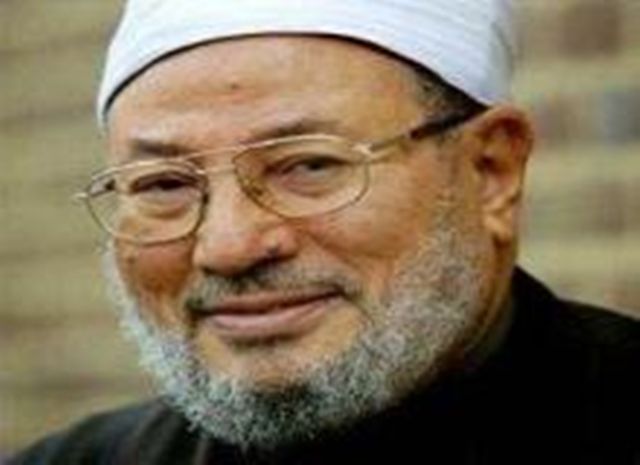
After Mubarak: Egypt’s Islamists Respond to a Secular Revolution
Publication: Terrorism Monitor Volume: 9 Issue: 8
By:

When Shaykh Yusuf al-Qaradawi took the stage in Tahrir Square on February 18, it was the first time in decades that the leading member of the Muslim Brotherhood and influential Doha-based TV commentator on Islamic issues had spoken publicly in Egypt. Before hundreds of thousands of people, al-Qaradawi warned the gathering against those who might usurp their revolution: “We want a new government that doesn’t include the old faces … When people see the old faces, it reminds them of hunger, poverty, misery.” He went on to call for the release of political prisoners, the disbandment of the state security services and an end to the Egyptian-enforced blockade of Gaza (Gulf Times, February 19).
The return of the native Egyptian shaykh was in many ways markedly different from the impact of local Islamists on the Egyptian revolution. Before and after the removal of President Hosni Mubarak, Egypt’s Islamists have been divided between the strategies of “immediate change” and “organized peaceful transformation.”
While the approaches of Islamists have varied, they have almost unanimously agreed on the legality of the demands presented by the youth revolution. The Salafists were the lone exception, fearing the concept of a civil-secular state. While the Muslim Brotherhood widened its political presence, the Salafists issued strong calls for the rule of Shari’a in Egypt. The once-militant Egyptian Islamic Group (EIG) looked for a means of participating in the new political era, either through unification with some other Islamist group or by founding a political party of their own.
After a shaky start, the Muslim Brotherhood managed to successfully adopt its strategies to the events. The Brothers joined the demonstrations in Tahrir Square on January 25; as Islamic scholar and author Mamdouh Salem put it, to do otherwise would have rendered the Muslim Brotherhood little more than “a group of undertakers.” [1]
The Brotherhood has also successfully eliminated all doubts and skepticism regarding its aspirations. The group said it participated but never claimed to own this great event. It also pacified existing fears by declaring it had no intention of nominating any of its leaders to compete for the presidency. The Brothers also expressed clearly their belief in and support of a civil state with Islamic foundations. The motive behind this series of statements was to put an end to concerns expressed in the media and elsewhere inside and outside Egypt.
The Muslims Brotherhood also accepted the national dialogue and participated in it with the vice president and other national forces on February 8 (BBC, February 11). In a clear attempt to reap the fruits of their participation and reassuring statements, the Brothers described the results of this dialogue as unsatisfactory in order to win the support of the masses in the streets and to maintain their legitimacy from one regime to the next. One cannot deny that this has been a responsible stand in favor of the Egyptian society, and it reveals a certain strategic intelligence. [2]
Exactly as the position of the Muslim Brotherhood maintained harmony with its own history and culture, the stand of Salafi groups also respected an allegiance to their basic beliefs.
The Salafists stood at a nearly equal distance from the revolution and the regime. Though they were apparently closer to the revolution, on February 1, they issued a statement denying a report by al-Jazeera saying that the Salafis used loudspeakers in the Muharram Baik neighborhood of Alexandria to call upon people to avoid participating in the demonstrations. [3] The Salafis also repeated in many statements issued since the beginning of the revolution that they support change for the better, but not a change leading to chaos. This is one of the main concerns that haunt many people of the political elite and the demonstrators in Tahrir Square, especially in the case of a sudden and direct confrontation or the creation of a political void.
The Salafists do not claim that they have adopted the same demands as the demonstrators. Salafist preacher Abdul Monem al-Shahhat describes the current scene as follows: “Each party can follow its own path. History has taught us that consuming the energy of the Islamists in futile arguments does not resolve the conflict but intensifies sedition; accordingly, the Salafi movement has abstained from repeating its declared position” [4]
For their part, the Salafist groups found their role in maintaining security at demonstrations, forming popular committees in the schools of Alexandria and calling upon the people not to resort to confrontations and give wise mediators a chance. This position has been represented by Sheikh Muhammad Hassan and Shaykh Khalid Abdullah and others. The movement also called upon the opportunists and the criminals wreaking havoc in the country to refrain from committing crimes. Generally, the Salafists have restrained themselves from exploiting the achievements of the secularists or other groups like the Copts and the Muslim Brotherhood in their own favor (al-Arabiya, January 30).
The Egyptian Islamic Group has stressed the unique nature of the Tunisian experience. Emphasizing that Egypt is different from Tunisia, the EIG refused to participate in the demonstrations, though they did not deny the legitimacy of the protesters’ demands and their right to organize peaceful demonstrations. In this regard, the group developed its rhetoric in an attempt to find a constitutionally-based solution that would guarantee an organized change of regime. The EIG suggested a scenario that would include immediate guarantees and constitutional reforms during the remainder of Mubarak’s term, but after his removal they issued a statement congratulating the people and thanking the army “for keeping the country’s stability and for protecting the Egyptian people’s interests.” The movement also called on the Supreme Council for the Armed Forces “to initiate a national dialogue with representatives of the protesters and the other political forces” (egyig.org, February 11).
Notes:
1. https://www.islamway.com/?iw_s=Article&iw_a=view&article_id=7019
2. https://www.ikhwanonline.com/Default.aspx
3. https://www.forsanelhaq.com/showthread.php?t=207715
4. https://www.anasalafy.com/play.php?catsmktba=24133





